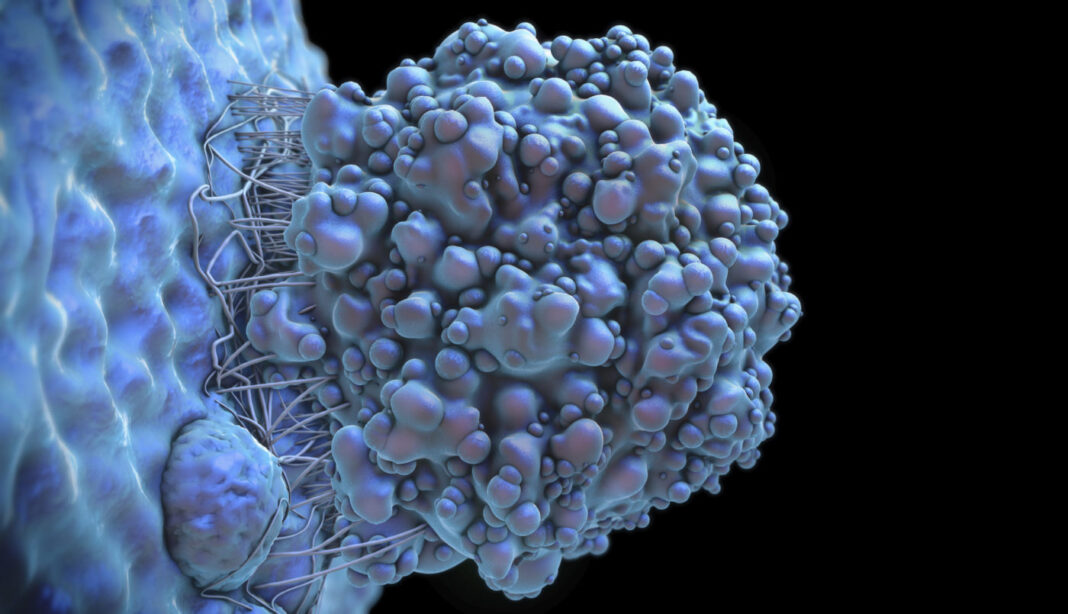Scientists at the City of Hope say they have identified and developed two potent small molecules that appear to suppress tumor growth in multiple cancers even when other treatments cease to work, possibly due to the development of drug resistance.
CS1 (or bisantrene) and CS2 (or brequinar), are cancer inhibitor compounds part of a protein known as “fat mass and obesity-associated protein.” Nicknamed FTO, the protein plays a critical role in cancer development and progression, primarily because it regulates cancer stem cells and immune evasion. In other words, FTO promotes the growth, self-renewal, metastasis, and immune escape of cancer cells.
“The cancer inhibitors we developed are at least 10 times more effective in killing acute myeloid leukemia cells than several previously reported FTO inhibitors,” said Jianjun Chen, PhD, the Simms/Mann Family Foundation Chair in Systems Biology at City of Hope and corresponding author of the new study “Targeting FTO Suppresses Cancer Stem Cell Maintenance and Immune Evasion”, which is published in Cancer Cell.
“In the near future, we should use these two compounds alone or in combination with other therapeutic agents such as targeted therapy, standard chemotherapy, immunotherapy, or radiotherapy to treat patients with FTO-high cancers.”
Examples of FTO-high cancers include acute myeloid leukemia (AML), an aggressive brain cancer called glioblastoma, pancreatic cancer and breast cancer. The study provides new insight into how cancer stem cells replenish and visibility into how cancer evades our immune system, according to Chen, who adds that it highlights the possibility that targeting FTO with potent inhibitors could eventually become a treatment for certain cancers.
In the study, City of Hope scientists demonstrated that the two new FTO inhibitor compounds they created had potent anti-tumor effects and substantially improved overall survival in mice with AML or a solid tumor such as breast cancer.
“Fat mass and obesity-associated protein (FTO), an RNA N 6-methyladenosine (m 6A) demethylase, plays oncogenic roles in various cancers, presenting an opportunity for the development of effective targeted therapeutics. Here, we report two potent small-molecule FTO inhibitors that exhibit strong anti-tumor effects in multiple types of cancers. We show that genetic depletion and pharmacological inhibition of FTO dramatically attenuate leukemia stem/initiating cell self-renewal and reprogram immune response by suppressing expression of immune checkpoint genes, especially LILRB4,” write the investigators.
“FTO inhibition sensitizes leukemia cells to T cell cytotoxicity and overcomes hypomethylating agent-induced immune evasion. Our study demonstrates that FTO plays critical roles in cancer stem cell self-renewal and immune evasion and highlights the broad potential of targeting FTO for cancer therapy.”
The Chen lab has been conducting research on RNA modification in cancer for eight years, developing personalized treatments for the practice of precision medicine. The lab began working on the CS1 and CS2 project three years ago when Chen first arrived at City of Hope.
Chen’s team noted that many cancer patients either do not respond to treatments that are currently available such as chemotherapy, targeted therapy, or immunotherapy, or that they responded to the therapeutics in the beginning but relapse later due to cancer-regenerating stem cells and the escape of cancer cells from our immune surveillance.
It turns out that modifying FTO or using small molecules to inhibit FTO interrupts the supply chain that enables cancer to develop and progress. Studies showed that treatment with a relatively low dose of CS1 or CS2 (5 mg/kg/day 10 times every other day) could, at the very least, double the median survival in mouse models with AML. CS1 became more potent after Chen’s lab put a sort of sleeve over it so that it could bypass certain barriers that do not like water-based molecules.
“Our study suggests that combining FTO inhibitor treatment with other therapies will improve patient outcomes because this method will eradicate cancer stem cells and mechanisms that suppress the immune system,” said Rui Su, PhD, lead author of the study and assistant research professor in the Department of Systems Biology at the Beckman Research Institute of City of Hope.
CS1 and CS2 prevent FTO from connecting with target messenger RNAs, including cancer-causing genes MYC and CEBPA, as well as immune checkpoint gene LILRB4.
Because CS1 (bisantrene) and CS2 (brequinar) have been tested in multiple clinical trials under the guises of other objectives, Chen and his colleagues believe this basic research has access to a freeway entrance that will fast track it into clinical trials.
The National Institutes of Health (NIH) has already funded the next step: The Chen lab is working to further optimize CS1 and CS2 to develop improved FTO inhibitor compounds that are more efficacious with minimal side effects for humans.






